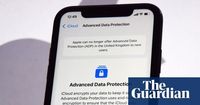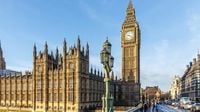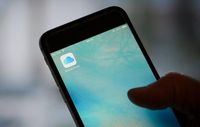In a rapidly escalating dispute over digital privacy, the British government has issued a new order demanding that Apple provide access to encrypted iCloud backups of its UK users, reigniting a global debate over the limits of state surveillance and the sanctity of personal data. The move, revealed in early September 2025 and confirmed by BBC and the Financial Times, comes after months of diplomatic wrangling and legal maneuvering among Apple, the UK Home Office, and US authorities.
The saga began quietly in January 2025, when the UK Home Office issued a Technical Capability Notice (TCN) under the revamped 2024 Investigatory Powers Act—legislation widely known among critics as the “Snoopers’ Charter.” The notice compelled Apple to create a backdoor for worldwide access to iCloud backups protected by its Advanced Data Protection (ADP) feature, which offers end-to-end encryption so robust that not even Apple can decrypt users’ data. Apple, which introduced ADP as an opt-in feature in 2022, responded by disabling enrollment in the UK and eventually removing the feature for existing UK users, according to TechCrunch.
The order provoked an immediate outcry. US Director of National Intelligence, Tulsi Gabbard, described the UK’s demand as a “clear and egregious violation of Americans’ privacy and civil liberties,” as reported by BBC. The White House, alarmed by the prospect of British authorities accessing American users’ data, pressured the UK government to withdraw its worldwide demand. By August 2025, Gabbard announced that the UK had dropped its request, and the diplomatic standoff appeared to have ended with a win for privacy advocates and Apple users outside the UK.
But the story didn’t end there. In a move that privacy activists and technology experts saw as a tactical retreat rather than a surrender, the British government issued a new, more targeted order in early September 2025. This time, the Home Office demanded backdoor access only to the data of British users, sidestepping the transatlantic dispute while doubling down on its domestic surveillance ambitions. The Financial Times reported that the latest order was designed to replace the previous worldwide mandate, which had caused such international uproar.
Apple, for its part, has been unwavering in its opposition. “As we have said many times before, we have never built a back door or master key to any of our products or services and we never will,” the company stated, according to BBC and TechCrunch. Apple’s spokesperson, Julien Trosdorf, expressed the company’s “grave disappointment” that it could no longer offer ADP to users in the UK, emphasizing that “enhancing the security of cloud storage with end-to-end encryption is more urgent than ever before.”
Despite Apple’s position, the company was forced to comply with the UK’s legal demands by disabling ADP for British users. Some existing users may still have access to the feature for now, but new enrollments are blocked, and the future of secure cloud storage in the UK remains uncertain. Apple has launched legal action against the government, with a tribunal hearing scheduled for January 2026, as confirmed by BBC.
The UK government, meanwhile, has defended its actions on national security grounds. A Home Office spokesperson told the BBC, “We will always take all actions necessary at the domestic level to keep UK citizens safe.” The Home Office declined to comment further, citing operational secrecy. The government insists that any access to private data would require an appropriate warrant and would only be used in cases of national security threats.
But privacy advocates and civil liberties groups are not convinced. Caroline Wilson Palow, legal director for Privacy International, warned, “By using a secret order to undermine the security of Apple products, the UK Government is making security harder for us all.” She added that if the new order isn’t stopped, “the UK Government will likely issue similar orders to other companies, too.” The concern is that creating a backdoor for one government—even if limited to one country’s users—could set a dangerous precedent, weakening encryption standards globally and opening the door to abuse by authoritarian regimes or cybercriminals.
This isn’t just a theoretical worry. As 9to5Mac pointed out, Apple has long argued that “weakening encryption in one area, weakens it worldwide.” The technical reality is that any deliberate vulnerability, even if intended for use only under strict legal oversight, can be exploited by bad actors if discovered. The UK’s insistence on a backdoor, critics say, is both “technically clueless” and repressive.
The legal battle over the UK’s orders has also raised issues of transparency and accountability. Apple challenged the secrecy of the process in court, and a judge ultimately sided with a coalition of civil liberties groups and news organizations, including the BBC, ruling that the legal dispute could not be held in secret. This decision marked a rare victory for transparency in an area often shrouded in official silence.
Behind the scenes, the diplomatic dimensions of the case have been equally complex. The initial worldwide demand by the UK government infuriated the US administration, and there were even threats from US intelligence services in February 2025 to reduce or halt data sharing with the UK. President Donald Trump, during a visit to the UK, reportedly compared the British request to Chinese-style state surveillance, according to AppleInsider. Once the UK limited its order to British users, American officials appeared to back off, leaving Apple and UK authorities to battle it out on home turf.
For now, British Apple users find themselves caught in the crossfire between national security policy and the right to privacy. The Home Office maintains that its actions are necessary to protect the public, while Apple and privacy campaigners argue that undermining encryption puts everyone at risk. The outcome of the tribunal hearing in January 2026 could have far-reaching implications—not just for Apple and its customers, but for the future of encrypted communications and digital privacy worldwide.
The stakes are high, and the world is watching. As Apple put it, “Apple remains committed to offering our users the highest level of security for their personal data and are hopeful that we will be able to do so in the future in the United Kingdom.” Whether that hope is realized will depend on the courts, the government, and the ongoing struggle between privacy and security in an increasingly digital world.






